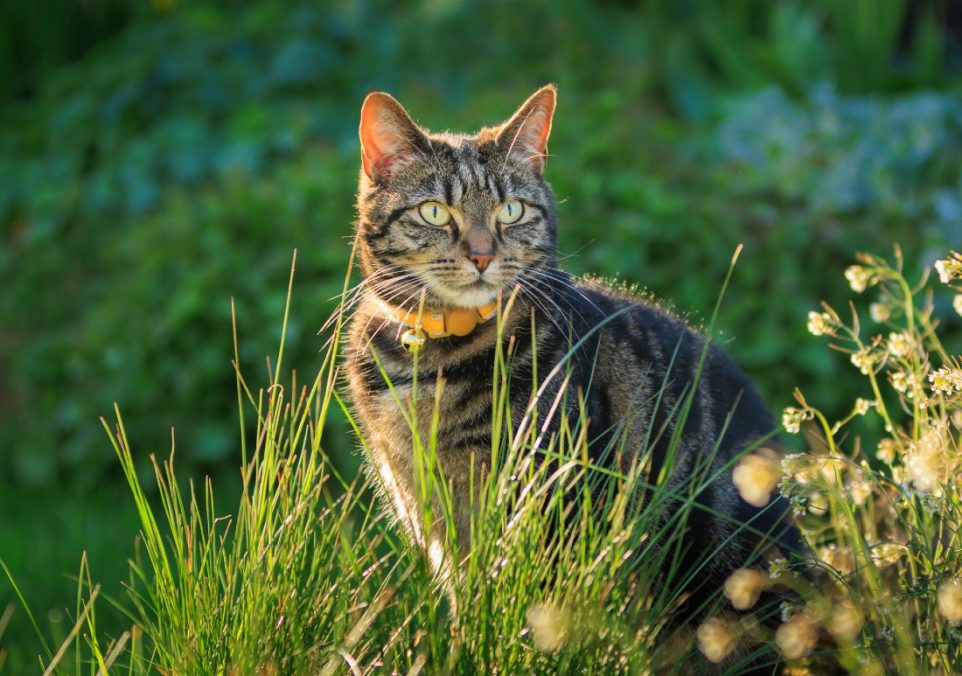How Long Do Outdoor Cats Live? 5 Tips For Feline Safety and Longevity Outdoors

The adventurous life is a reality for many cats, spending time both indoors and out. But how long do these outdoor cats tend to live? If you’re a cat owner who allows your feline friend to roam outside, you’re probably wondering what their lifespan might be. It’s easy to assume that the outdoor environment is hazardous and that they might not live as long as indoor cats, but that’s not necessarily the case.
The truth is, outdoor cats can live just as long as indoor cats, if not longer, depending on their living environment and the care they receive from their owners. In this post, we’ll discuss how long outdoor cats live, as well as five tips for keeping your beloved pet safe and healthy while regularly exploring the outdoors.
The Average Life Span of an Outdoor Cat
The average lifespan of an outdoor cat is 7 to 10 years, though this can vary depending on access to food and water, living conditions, and veterinary care. Outdoor cats may face many environmental challenges that can contribute to shorter lifespans, such as predators, parasites, disease, harsh weather conditions, and accidents. Additionally, stray cats often lack sufficient nutrition due to limited food resources and may not have access to medical support.
Ensuring Outdoor Cat Safety
The best way to ensure outdoor cat safety is by providing them with a secure environment that will reduce their exposure to potential hazards. Your pet should wear a cat collar that’s fitted with identification tags in case they get lost or end up in animal control. It’s also important for owners to spay or neuter their pets—this not only prevents them from adding to the population of stray cats but also reduces aggressive behavior and the spread of certain diseases. Furthermore, cats should stay up to date on vaccinations against infectious diseases like rabies and kept indoors at night when most predators are active.
Diet and Exercise
Outdoor cats should have access to plenty of fresh water and a balanced diet of high-quality food supplemented with occasional treats like chicken or tuna. Small meals dispersed throughout the day are ideal for outdoor cats since they may have difficulty finding consistent sources of food and water in the wild. Additionally, puzzle feeders or toys can provide entertainment and physical stimulation during mealtime, as well as give cats a sense of structure in their environment while they explore and hunt outdoors during the day.
Prevention of Disease
Many diseases can affect outdoor cats, which can reduce their life expectancy if not treated in time. You can prevent parasites such as fleas or ticks with regular treatment and reduce occurrences of respiratory infections through regular vaccinations and good hygiene practices such as keeping litter boxes clean. Regular vet visits should also include deworming measures every 6 months in order to prevent infection from parasites like roundworms and hookworms.
Provide Socialization
Although outdoor cats spend most of their time alone, it’s important for pet owners to provide social interaction with other cats and people when possible. This allows cats to establish trust with others and helps them develop positive behaviors which can benefit their lifespan outdoors. If you find yourself taking care of multiple cats in your backyard, you may want to consider purchasing a special cat collar with a bell attached so they can locate each other during playtime or in times of distress or danger.
Conclusion
Outdoor cats, although they face many environmental hazards, can be just as healthy and happy as indoor cats with proper care and attention. From providing a safe environment to establishing a nutritious diet and preventive health measures, there are many steps pet owners can take to ensure their cats stay safe and live a long life outdoors. Outdoor cats are an important part of our lives, and with proper care and love, they can live as long as indoor cats, if not longer.
Your Pet’s Best Interest, Always
At Pet Institute, we take pet care seriously. We're dedicated to transparency, impartiality, and the well-being of your pets in every article, review, and recommendation we provide. Our unwavering commitment to these principles ensures that you, our valued reader, always receive reliable and unbiased information. Let us be your trusted guide in the world of pet care and companionship.